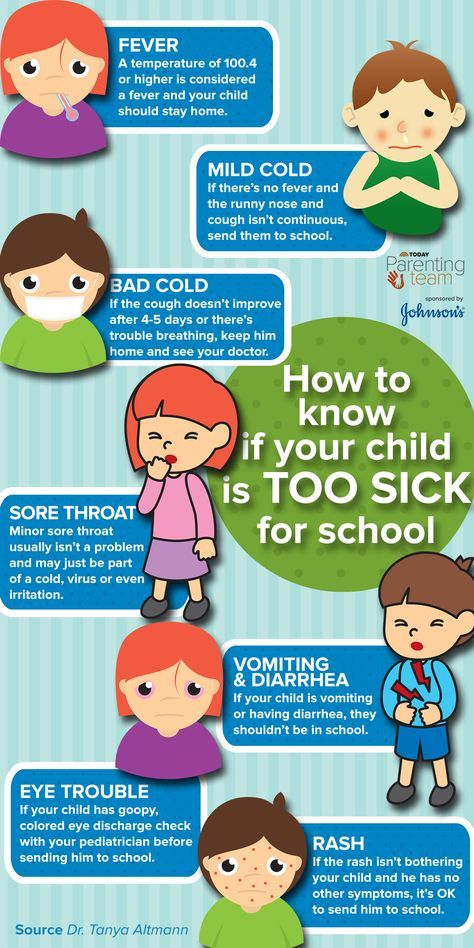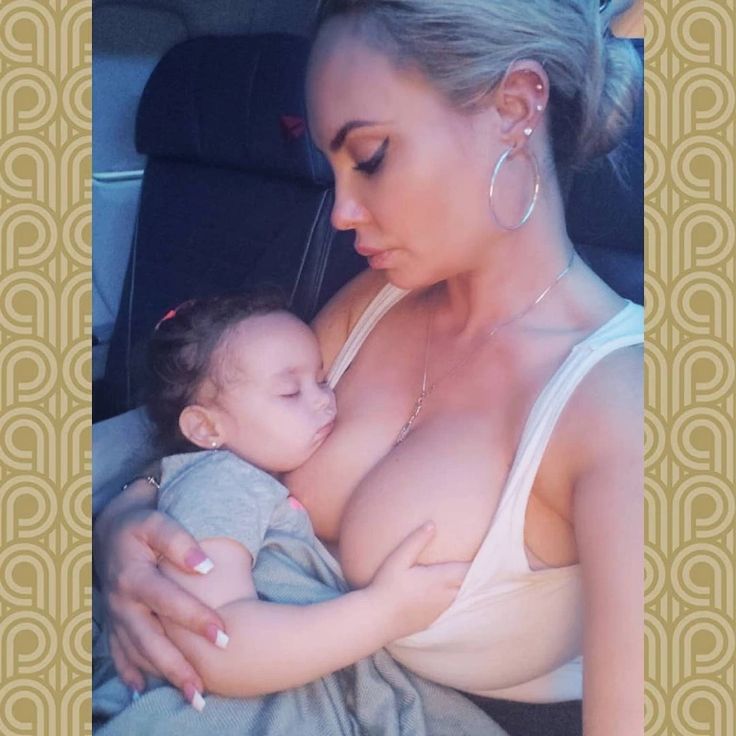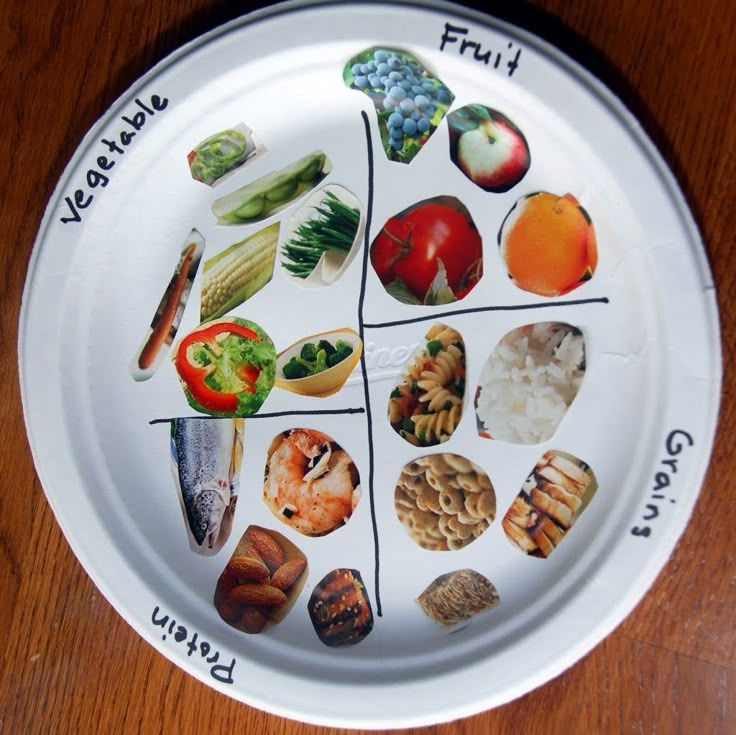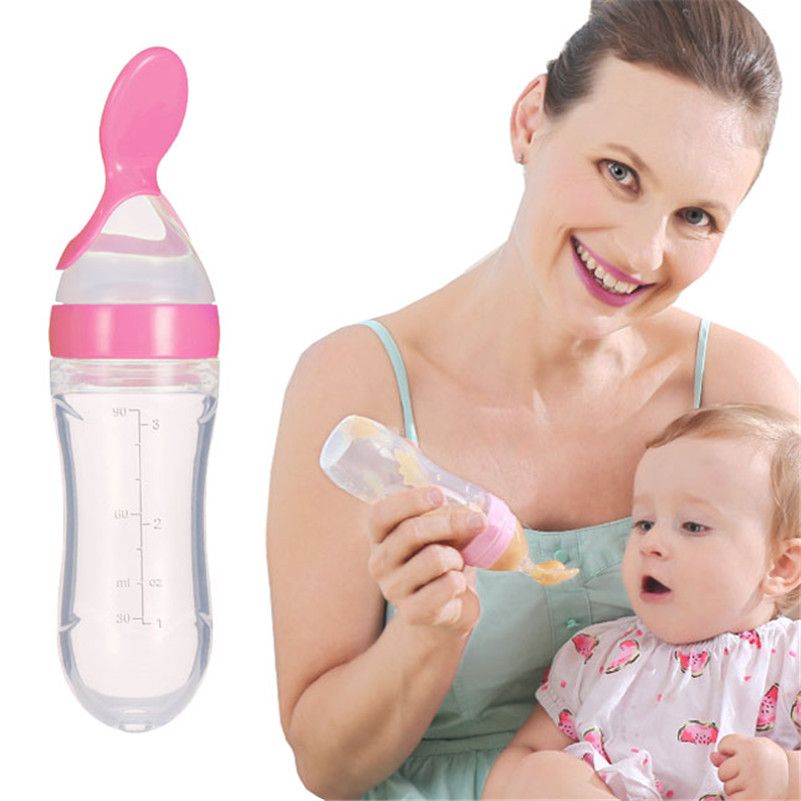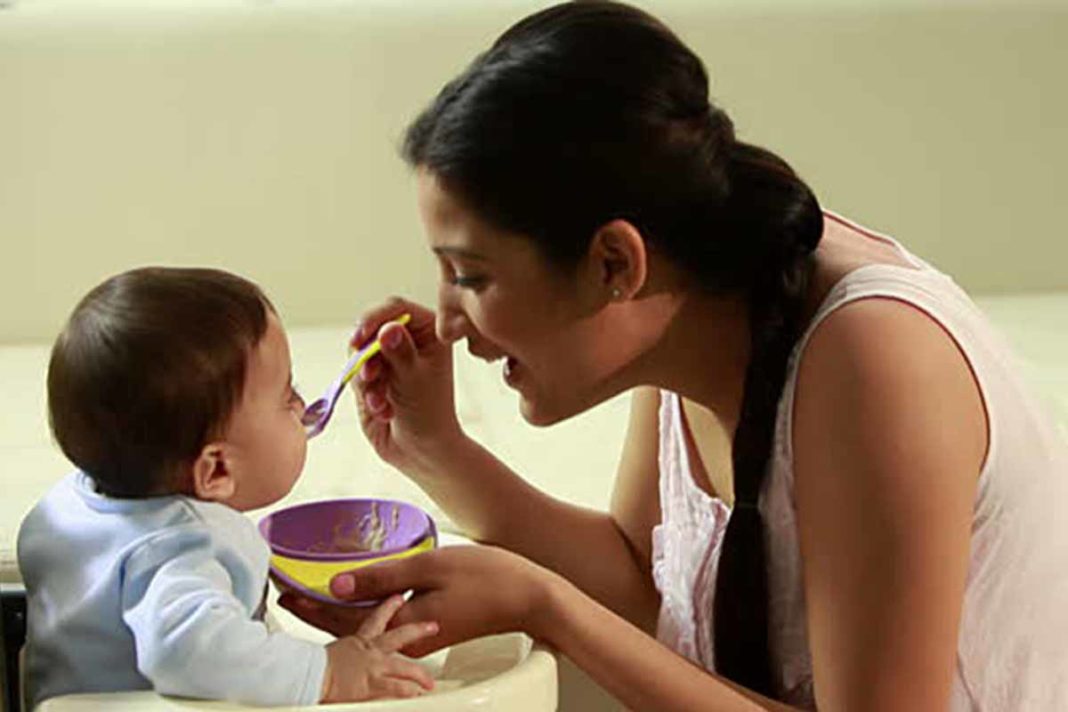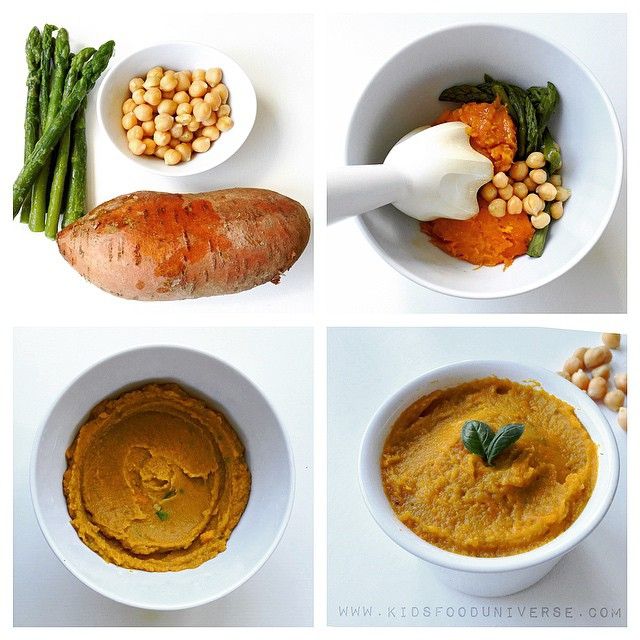Should i feed baby again after vomiting
How to Know Whether You Should
Your baby just threw up all the milk they’ve chugged down so far, and you’re wondering if it’s OK to continue feeding. How soon should you feed your baby after vomiting?
It’s a good question — just about every parent has likely pondered this. Spit-up is almost a rite of passage for babies (and parents). Baby vomiting is also common and can happen for many reasons. Most of the causes aren’t serious.
The short answer — because you may have a very fussy baby on your hands and want to get back to them ASAP — is yes, you can usually feed your baby after they vomit all over your favorite sweater, sofa throw, and rug.
Here’s just about everything you need to know about feeding your baby after vomiting.
Baby vomit and spit-up are two different things — and they can have different causes. Spitting up is common in babies under the age of 1 year. It typically happens after feeding. Spit-up is usually an easy flow of milk and saliva that dribbles from your baby’s mouth. It often happens with a burp.
Spit-up is normal in healthy babies. It can happen for several reasons. About half of all babies 3 months and under have a type of acid reflux called infant reflux.
Spit-up from infant reflux is especially bound to happen if your baby has a full stomach. Being careful not to overfeed a bottle-fed infant can help. Spitting up typically stops by the time your baby is a year old.
On the other hand, vomiting is typically a more forceful throwing-up of milk (or food, if your baby is old enough to eat solids). It happens when the brain signals the muscles around the stomach to squeeze.
Vomiting (like gagging) is a reflex action that can be triggered by a number of things. These include:
- irritation from a viral or bacterial infection, like the stomach bug
- fever
- pain, such as from a fever, earache, or vaccination
- blockage in the stomach or intestines
- chemicals in the blood, like medicine
- allergens, including pollen; very uncommon in babies under 1 year
- motion sickness, such as during a car ride
- dizziness, which might happen after being twirled around too much
- being upset or stressed
- strong smells
- milk intolerance
Vomiting is also common in healthy babies, but it might mean that your baby has caught a bug or is feeling a bit under the weather.
Too much vomiting can cause dehydration and even weight loss in very serious cases. Milk feeding can help prevent both of these. Offer your baby a feeding after they’ve stopped throwing up. If your baby is hungry and takes to the bottle or breast after vomiting, go right ahead and feed them.
Liquid feeding after vomiting can sometimes even help settle your baby’s nausea. Start with small amounts of milk and wait to see if they vomit again. Your baby might vomit the milk right back up, but it’s better to try than not.
If your little one is at least 6 months old and doesn’t want to feed after throwing up several times, offer them water in a bottle or a spoon. This can help prevent dehydration. Wait a short while and try feeding your baby again.
In some cases, it’s better not to feed a baby right after vomiting. If your baby is throwing up because of an earache or fever, they may benefit from medication first.
Most pediatricians recommend pain medications like infant Tylenol for babies in their first year.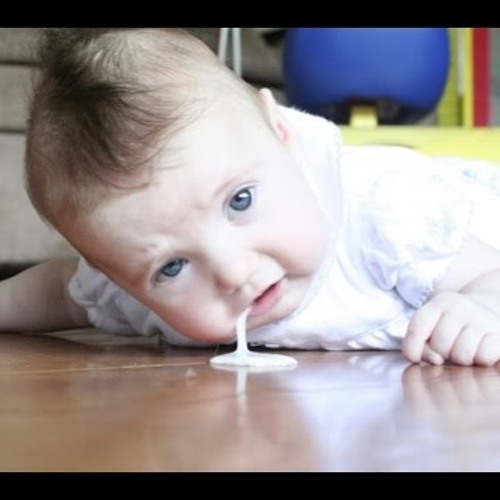 Ask your doctor about the best medication and dosage for your baby.
Ask your doctor about the best medication and dosage for your baby.
If giving pain medication based on your doctor’s advice, wait about 30 to 60 minutes after doing so to feed your little one. Feeding them too soon might cause another bout of vomiting before the meds can work.
Motion sickness isn’t common in babies under the age of 2 years, but some babies may be more sensitive to it. If your baby vomits from motion sickness, it’s better not to offer a feeding afterward.
You’re in luck if your baby likes to nod off in the car. Wait until you’re out of the car to feed your baby milk.
Baby vomiting can be worrying, but it usually goes away by itself — even if your baby has the stomach bug. Most babies with gastroenteritis don’t need medical treatment. This means that most of the time, you’ll have to bravely wait out your baby’s vomiting.
But sometimes, throwing up is a sign that something’s not right. You know your baby best. Trust your gut and call their doctor if you feel your little one is unwell.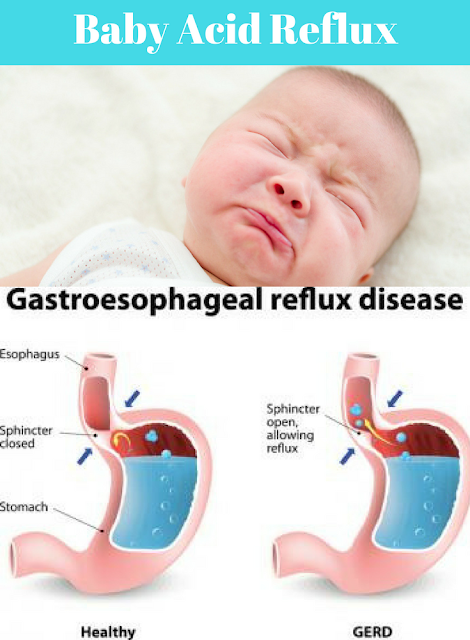
In addition, take your baby to a doctor immediately if they’ve been vomiting for 12 hours or longer. Babies and children can dehydrate quickly from too much vomiting.
Also call your baby’s pediatrician if your baby can’t hold anything down and has signs and symptoms of being unwell. These include:
- constant crying
- pain or discomfort
- refusal to feed or drink water
- diaper that hasn’t been wet for 6 hours or longer
- diarrhea
- dry lips and mouth
- crying without tears
- extra sleepiness
- floppiness
- vomiting blood or fluid with black flecks (“coffee grounds”)
- lack of smile or response
- vomiting green fluid
- bloated tummy
- blood in bowel movements
You won’t usually have any control over when or how much your baby vomits. When it happens on occasion, repeat this mantra to help you cope: “Healthy babies sometimes vomit.”
However, if your baby often vomits (or spits up) after feeding, you may be able to take some preventative steps. Try these tips:
Try these tips:
- avoid overfeeding
- give your baby smaller, more frequent feeds
- burp your baby often between feeds and after feeds
- prop up your baby so they’re upright for at least 30 minutes after feeding (but don’t prop your baby up for sleep or use anything to position them in their crib or elevate their mattress)
If your baby has a tummy bug and is old enough to eat solid foods, avoid feeding solids for about 24 hours. A liquid diet can help the stomach settle after a bout of vomiting.
Vomiting and spit-up are common in healthy babies. In most cases, you can milk feed shortly after your baby vomits. This helps to prevent your baby from getting dehydrated.
In some cases it’s best to wait a little while before trying to feed your baby again. If you’re giving your child medication like pain and fever relievers, wait a bit so the meds don’t come back up.
If your baby is vomiting a lot or seems otherwise unwell, call your pediatrician immediately. If you’re unsure if your baby’s vomiting or spit-up is cause for concern, it’s always best to check with your doctor.
If you’re unsure if your baby’s vomiting or spit-up is cause for concern, it’s always best to check with your doctor.
Vomiting (0-12 Months)
Is this your child's symptom?
- Vomiting (throwing up) stomach contents
- Other names for vomiting are puking, barfing and heaving
Causes of Vomiting
- Viral Gastritis. Stomach infection from a stomach virus is the most common cause. Also called stomach flu. A common cause is the Rotavirus. The illness starts with vomiting. Watery loose stools may follow within 12-24 hours.
- Food Allergy. Vomiting can be the only symptom of a food reaction. The vomiting comes on quickly after eating the food. Uncommon in infants, but main foods are eggs and peanut butter.
- Coughing. Hard coughing can also cause your child to throw up. This is more common in children with reflux.
- Serious Causes. Vomiting alone should stop within about 24 hours.
 If it lasts over 24 hours, you must think about more serious causes. An example is a kidney infection. A serious cause in young babies is pyloric stenosis. See below for more on this.
If it lasts over 24 hours, you must think about more serious causes. An example is a kidney infection. A serious cause in young babies is pyloric stenosis. See below for more on this.
Pyloric Stenosis (Serious Cause)
- The most common cause of true vomiting in young babies.
- Onset of vomiting is age 2 weeks to 2 months
- Vomiting is forceful. It becomes projectile and shoots out.
- Right after vomiting, the baby is hungry and wants to feed. ("hungry vomiter")
- Cause: The pylorus is the channel between the stomach and the gut. In these babies, it becomes narrow and tight.
- Risk: Weight loss or dehydration
- Treatment: Cured by surgery.
Vomiting Scale
- Mild: 1 - 2 times/day
- Moderate: 3 - 7 times/day
- Severe: Vomits everything, nearly everything or 8 or more times/day
- Severity relates even more to how long the vomiting goes on for.
 At the start of the illness, it's common for a child to vomit everything. This can last for 3 or 4 hours. Children then often become stable and change to mild vomiting.
At the start of the illness, it's common for a child to vomit everything. This can last for 3 or 4 hours. Children then often become stable and change to mild vomiting. - The main risk of vomiting is dehydration. Dehydration means the body has lost too much fluid.
- The younger the child, the greater the risk for dehydration.
Dehydration: How to Tell
- The main risk of vomiting is dehydration. Dehydration means the body has lost too much water.
- Vomiting with watery diarrhea is the most common cause of dehydration.
- Dehydration is a reason to see a doctor right away.
- Your child may have dehydration if not drinking much fluid and:
- The urine is dark yellow and has not passed any in over 8 hours.
- Inside of the mouth and tongue are very dry.
- No tears if your child cries.
- Slow blood refill test: Longer than 2 seconds. First, press on the thumbnail and make it pale. Then let go. Count the seconds it takes for the nail to turn pink again.
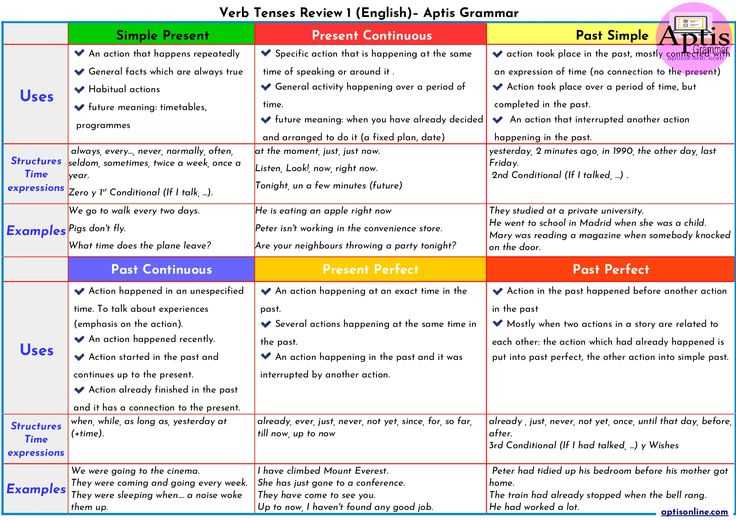 Ask your doctor to teach you how to do this test.
Ask your doctor to teach you how to do this test.
When to Call for Vomiting (0-12 Months)
Call 911 Now
- Can't wake up
- Not moving
- You think your child has a life-threatening emergency
Call Doctor or Seek Care Now
- Dehydration suspected. No urine in over 8 hours, dark urine, very dry mouth and no tears.
- Stomach pain when not vomiting. Exception: stomach pain or crying just before vomiting is quite common.
- Age less than 12 weeks old with vomiting 2 or more times. Exception: normal spitting up.
- Vomited 3 or more times and also has diarrhea
- Severe vomiting (vomits everything) more than 8 hours while getting Pedialyte (or breastmilk)
- Head injury within the last 24 hours
- Weak immune system. Examples are sickle cell disease, HIV, cancer, organ transplant, taking oral steroids.
- Vomiting a prescription medicine
- Fever over 104° F (40° C)
- Fever in baby less than 12 weeks old.
 Caution: Do NOT give your baby any fever medicine before being seen.
Caution: Do NOT give your baby any fever medicine before being seen. - Your child looks or acts very sick
- You think your child needs to be seen, and the problem is urgent
Contact Doctor Within 24 Hours
- All other infants (age less than 1 year) with vomiting. See Care Advice while waiting to discuss with doctor.
Seattle Children's Urgent Care Locations
If your child’s illness or injury is life-threatening, call 911.
- Bellevue
- Everett
- Federal Way
- Seattle
Care Advice for Vomiting
- What You Should Know About Vomiting:
- Most vomiting is caused by a viral infection of the stomach.
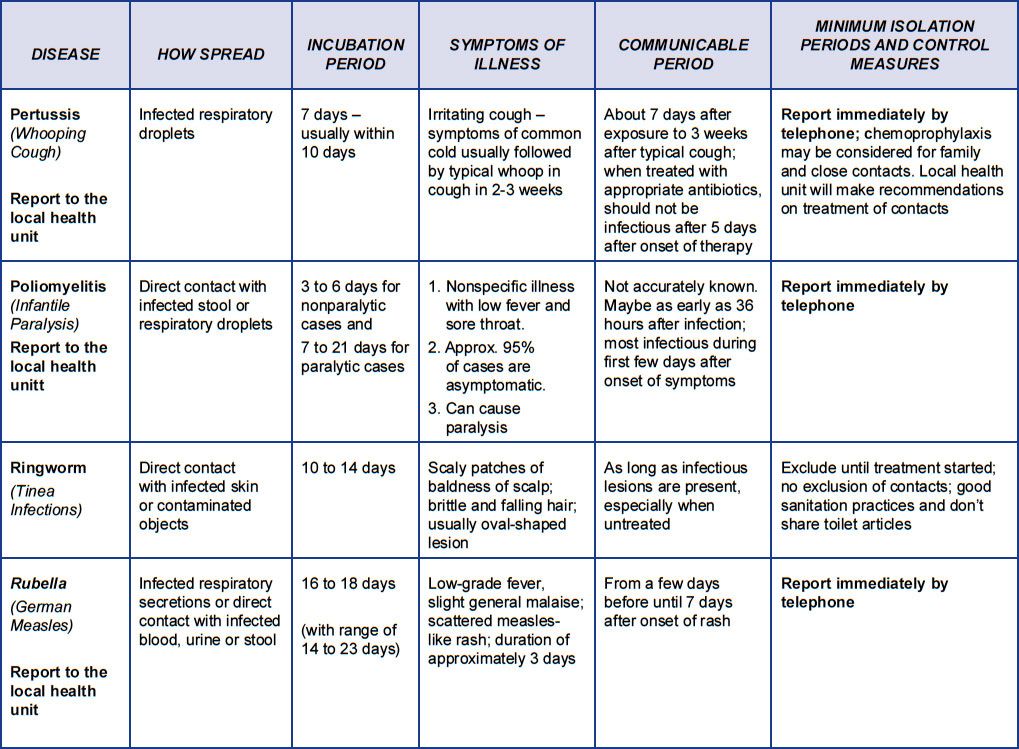
- Vomiting is the body's way of protecting the lower gut.
- The good news is that stomach illnesses last only a short time.
- The main risk of vomiting is dehydration. Dehydration means the body has lost too much fluid.
- Here is some care advice that should help.
- Most vomiting is caused by a viral infection of the stomach.
- Formula Fed Babies - May Give Oral Rehydration Solution (ORS) for 8 Hours:
- If vomits once, give half the regular amount of formula every 1 to 2 hours.
- If vomits formula more than once, offer ORS for 8 hours. If you don't have ORS, use formula until you can get some.
- ORS is a special fluid that can help your child stay hydrated. You can use Pedialyte or the store brand of ORS. It can be bought in food stores or drug stores.
- Spoon or syringe feed small amounts. Give 1-2 teaspoons (5-10 mL) every 5 minutes.
- After 4 hours without throwing up, double the amount.
- Return to Formula. After 8 hours without throwing up, go back to regular formula.

- Breastfed Babies - Reduce the Amount Per Feeding:
- If vomits once, nurse half the regular time every 1 to 2 hours.
- If vomits more than once, nurse for 5 minutes every 30 to 60 minutes. After 4 hours without throwing up, return to regular nursing.
- If continues to vomit, switch to pumped breastmilk. (ORS is rarely needed in breastfed babies. It can be used if vomiting becomes worse).
- Spoon or syringe feed small amounts of pumped milk. Give 1-2 teaspoons (5-10 mL) every 5 minutes.
- After 4 hours without throwing up, return to regular feeding at the breast. Start with small feedings of 5 minutes every 30 minutes. As your baby keeps down the smaller amounts, slowly give more.
- Pumped Breastmilk Bottle-Fed Infants - Reduce the Amount per Feeding:
- If vomits once and bottle-feeding breastmilk, give half the regular amount every 1-2 hours.
- If vomits more than once within last 2 hours, give 1 ounce (30 mL) every 30 to 60 minutes.

- If continues to vomit, give 1-2 teaspoons (5-10 mL) every 5 minutes. Only if not tolerating breastmilk, switch to ORS (e.g., Pedialyte) for every 5 minutes for a few hours.
- After 4 hours without vomiting, return to regular feedings. Start with 1 ounce (30 mL) every 30 minutes and slowly increase as tolerated.
- Stop All Solid Foods:
- Avoid all solid foods and baby foods in kids who are vomiting.
- After 8 hours without throwing up, gradually add them back.
- If on solid foods, start with starchy foods that are easy to digest. Examples are cereals, crackers and bread.
- Do Not Give Medicines:
- Stop using any drug that is over-the-counter for 8 hours. Reason: Some of these can make vomiting worse.
- Fever. Mild fevers don't need to be treated with any drugs. For higher fevers, you can use an acetaminophen suppository (such as FeverAll). This is a form of the drug you put in the rectum (bottom).
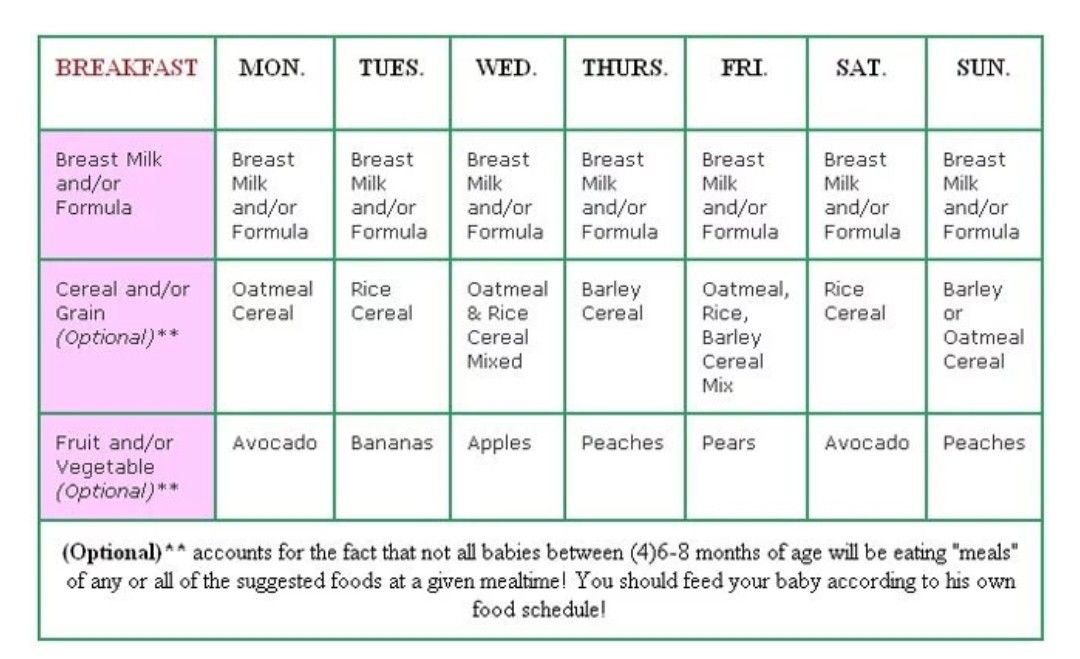 Ask a pharmacist for help finding this product. Do not use ibuprofen. It can upset the stomach.
Ask a pharmacist for help finding this product. Do not use ibuprofen. It can upset the stomach. - Call your doctor if: Your child vomits a drug ordered by your doctor.
- Try to Sleep:
- Help your child go to sleep for a few hours.
- Reason: Sleep often empties the stomach and removes the need to vomit.
- Your child doesn't have to drink anything if his stomach feels upset and he doesn't have any diarrhea.
- Return to Child Care:
- Your child can return to child care after the vomiting and fever are gone.
- What to Expect:
- For the first 3 or 4 hours, your child may vomit everything. Then the stomach settles down.
- Vomiting from a viral illness often stops in 12 to 24 hours.
- Mild vomiting and nausea may last up to 3 days.
- Call Your Doctor If:
- Vomits clear fluids for more than 8 hours
- Vomiting lasts more than 24 hours
- Blood or bile (green color) in the vomit
- Stomach ache present when not vomiting
- Dehydration suspected (no urine in over 8 hours, dark urine, very dry mouth, and no tears)
- You think your child needs to be seen
- Your child becomes worse
And remember, contact your doctor if your child develops any of the 'Call Your Doctor' symptoms.

Disclaimer: this health information is for educational purposes only. You, the reader, assume full responsibility for how you choose to use it.
Last Reviewed: 01/05/2023
Last Revised: 12/30/2022
Copyright 2000-2023 Schmitt Pediatric Guidelines LLC.
Feeding a baby after vomiting: how to know if
Share on Pinterest
Your baby has lost all the milk he has sifted so far and you are wondering if you can continue to feed. How fast should a baby be fed after vomiting?
This is a good question - probably every parent has thought about it. Spitting up is almost a rite of passage for babies (and parents). Vomiting in babies is also common and can occur for several reasons. Most of the reasons are not serious. nine0003
Short answer - because you might have a very naughty baby in your arms and want to get back to them as soon as possible - yes, you can usually feed your baby after vomiting over your favorite sweater, sofa and coat.
Here's what you need to know about feeding your baby after vomiting.
contents
Causes of vomiting and spitting up in children
Vomiting and spitting in a child are two different things and can have different causes. Regurgitation is common in children under 1 year of age. This usually happens after feeding. Drinking is usually a slight discharge of milk and saliva from the child's mouth. Often happens with a wedding ring. nine0003
Regurgitation is normal in healthy children. This can happen for several reasons. Pola's eye All babies aged 3 months and younger have a type of acid reflux called infantile reflux.
Infantile reflux sputum especially occurs if the child has a full stomach. Being careful not to bottle feed your baby can help. The spitting up usually stops by the time your baby is one year old.
On the other hand, vomiting is usually the forced expulsion of milk (or food if your child is old enough to eat solid food). This happens when the brain signals the abdominal muscles to contract. nine0003
nine0003
Vomiting (like trampling) is a reflex action that can trigger a number of things. This includes:
- irritation from a viral or bacterial infection, such as a stomach bug
- high fever
- pain, such as fever, lice, or vaccinations
- blockage in the stomach or intestines
- chemicals in the blood, such as drugs 9028
- allergens, including pollen; very rare in children under 1 year of age
- motion sickness, eg while driving a car
- dizziness that can occur after we toss too much
- anxious or tense
- strong smells
- milk intolerance
feels a little out of place.
When to feed your baby after vomiting
Vomiting too much can cause dehydration and even weight loss in very serious cases. Breastfeeding can help prevent both. Offer to feed your baby after he stops throwing. If your baby is hungry and bottles or breastfeeds after vomiting, go ahead and feed him.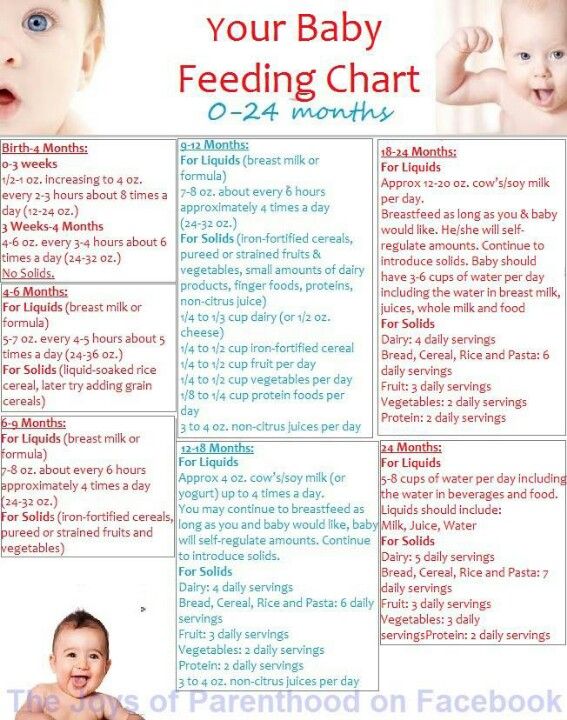 nine0003
nine0003
Liquid feeding after vomiting can sometimes even relieve your child's nausea. Start with a small amount of milk and wait until they vomit again. Your baby may vomit milk right away, but it's better to try than not.
If your baby is at least 6 months old and doesn't want to be fed after a few throws, offer him a bottle or spoonful of water. This can prevent dehydration. Wait a while and try feeding your baby again. nine0003
When not to feed the baby after vomiting
In some cases it is better not to feed the baby immediately after vomiting. If a child is kicked out due to head lice or a fever, medication may help at first.
Most pediatricians recommend pain relievers such as neonatal Tylenol for infants in their first year of life. Ask your doctor about the best medicines and dosage for your child.
If you are giving pain medication as directed by your doctor, wait 30 to 60 minutes after feeding your baby. Feeding prematurely can cause more vomiting before the medications take effect.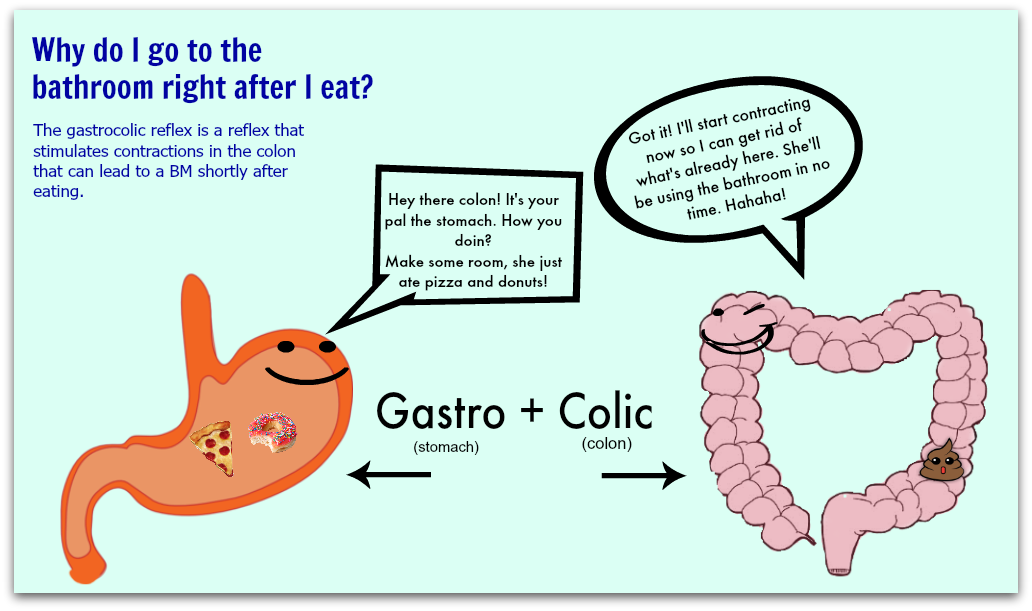 nine0003
nine0003
Movement sickness is rare in children under 2 years of age, but some children may be more susceptible to it. If the baby is vomiting from mobility, it is best not to offer feeding after that.
You are lucky if your child likes to nod in the car. Wait until you get out of the car to feed the baby with milk.
When to Call the Pediatrician
Your child's vomiting can be worrying, but it usually goes away on its own, even if your child has kidneys. Most children with gastroenteritis do not need treatment. This means that most of the time you will have to bravely wait until the baby vomits. nine0003
But sometimes vomiting is a sign that something is wrong. You know your child best. Trust your intuition and call the doctor if you think your baby doesn't like it.
Also, take your child to the doctor immediately if he or she vomits for 12 hours or more. Babies and children can quickly become dehydrated due to excessive vomiting.
Also call your child's pediatrician if the child cannot hold anything and has signs and symptoms that are not good. This includes:
This includes:
- Conductive crying
- Pain or discomfort
- Refusal or drinking water
- DISTRICAL, which was not wet for 6 hours or longer than
- Diariya
- Dry Lip and ROOT
- I pay without tears
- Additional drill.
- lethargy
- vomiting of blood or liquid with black spots (“coffee grounds”)
- no smile or response
- vomiting of green liquid
- distended abdomen
- blood in stool
Feeding-related vomiting reduction
You usually have no control over when and how much your baby vomits. When this happens, chant this mantra to deal with it: "Healthy children sometimes vomit."
However, if your baby frequently vomits (or spit up) after feeding, you can take some preventive measures. Try these tips:
- avoid overeating
- feed your baby less and more often
- Feed the baby often between and after feedings
- Support the baby in an upright position for at least 30 minutes after feeding (but do not lift the baby to sleep and do not use anything to put him in the crib or lift him up mattress)
If your child has a tummy and is old enough to eat solid food, avoid solid food for about 24 hours. A liquid diet can help the stomach shrink after vomiting. nine0003
A liquid diet can help the stomach shrink after vomiting. nine0003
Excursion
Vomiting and regurgitation are typical for healthy children. In most cases, you can breastfeed her soon after she vomits. This helps prevent your child from becoming dehydrated.
In some cases, it is better to wait a little before trying to feed the baby again. If you are giving your child medicines such as painkillers and fever reducers, wait a while so that the medicines do not repeat.
Call your pediatrician immediately if your child is vomiting or not feeling well. If you're not sure if your baby's vomiting or spitting up is a cause for concern, it's always best to check with your doctor. nine0003
Feeding your baby after vomiting: how to know if
Share on Pinterest
Your baby has lost all the milk he has sifted so far and you are wondering if you can continue to feed. How fast should a baby be fed after vomiting?
This is a good question - probably every parent has thought about it. Spitting up is almost a rite of passage for babies (and parents). Vomiting in babies is also common and can occur for several reasons. Most of the reasons are not serious. nine0003
Spitting up is almost a rite of passage for babies (and parents). Vomiting in babies is also common and can occur for several reasons. Most of the reasons are not serious. nine0003
Short answer - because you might have a very naughty baby in your arms and want to get back to them as soon as possible - yes, you can usually feed your baby after vomiting over your favorite sweater, sofa and coat.
Here's what you need to know about feeding your baby after vomiting.
contents
Causes of vomiting and spitting up in children
Vomiting and spitting in a child are two different things and can have different causes. Regurgitation is common in children under 1 year of age. This usually happens after feeding. Drinking is usually a slight discharge of milk and saliva from the child's mouth. Often happens with a wedding ring. nine0003
Regurgitation is normal in healthy children. This can happen for several reasons. Pola's eye All babies aged 3 months and younger have a type of acid reflux called infantile reflux.
Infantile reflux sputum especially occurs if the child has a full stomach. Being careful not to bottle feed your baby can help. The spitting up usually stops by the time your baby is one year old.
On the other hand, vomiting is usually the forced expulsion of milk (or food if your child is old enough to eat solid food). This happens when the brain signals the abdominal muscles to contract. nine0003
Vomiting (like trampling) is a reflex action that can trigger a number of things. This includes:
- irritation from a viral or bacterial infection, such as a stomach bug
- high fever
- pain, such as fever, lice, or vaccinations
- blockage in the stomach or intestines
- chemicals in the blood, such as drugs 9028
- allergens, including pollen; very rare in children under 1 year of age
- motion sickness, eg while driving a car
- dizziness that can occur after we toss too much
- anxious or tense
- strong smells
- milk intolerance
feels a little out of place.
When to feed your baby after vomiting
Vomiting too much can cause dehydration and even weight loss in very serious cases. Breastfeeding can help prevent both. Offer to feed your baby after he stops throwing. If your baby is hungry and bottles or breastfeeds after vomiting, go ahead and feed him. nine0003
Liquid feeding after vomiting can sometimes even relieve your child's nausea. Start with a small amount of milk and wait until they vomit again. Your baby may vomit milk right away, but it's better to try than not.
If your baby is at least 6 months old and doesn't want to be fed after a few throws, offer him a bottle or spoonful of water. This can prevent dehydration. Wait a while and try feeding your baby again. nine0003
When not to feed the baby after vomiting
In some cases it is better not to feed the baby immediately after vomiting. If a child is kicked out due to head lice or a fever, medication may help at first.
Most pediatricians recommend pain relievers such as neonatal Tylenol for infants in their first year of life. Ask your doctor about the best medicines and dosage for your child.
Ask your doctor about the best medicines and dosage for your child.
If you are giving pain medication as directed by your doctor, wait 30 to 60 minutes after feeding your baby. Feeding prematurely can cause more vomiting before the medications take effect. nine0003
Movement sickness is rare in children under 2 years of age, but some children may be more susceptible to it. If the baby is vomiting from mobility, it is best not to offer feeding after that.
You are lucky if your child likes to nod in the car. Wait until you get out of the car to feed the baby with milk.
When to Call the Pediatrician
Your child's vomiting can be worrying, but it usually goes away on its own, even if your child has kidneys. Most children with gastroenteritis do not need treatment. This means that most of the time you will have to bravely wait until the baby vomits. nine0003
But sometimes vomiting is a sign that something is wrong. You know your child best. Trust your intuition and call the doctor if you think your baby doesn't like it.
Also, take your child to the doctor immediately if he or she vomits for 12 hours or more. Babies and children can quickly become dehydrated due to excessive vomiting.
Also call your child's pediatrician if the child cannot hold anything and has signs and symptoms that are not good. This includes:
- Conductive crying
- Pain or discomfort
- Refusal or drinking water
- DISTRICAL, which was not wet for 6 hours or longer than
- Diariya
- Dry Lip and ROOT
- I pay without tears
- Additional drill.
- lethargy
- vomiting of blood or liquid with black spots (“coffee grounds”)
- no smile or response
- vomiting of green liquid
- distended abdomen
- blood in stool
Feeding-related vomiting reduction
You usually have no control over when and how much your baby vomits. When this happens, chant this mantra to deal with it: "Healthy children sometimes vomit. "
"
However, if your baby frequently vomits (or spit up) after feeding, you can take some preventive measures. Try these tips:
- avoid overeating
- feed your baby less and more often
- Feed the baby often between and after feedings
- Support the baby in an upright position for at least 30 minutes after feeding (but do not lift the baby to sleep and do not use anything to put him in the crib or lift him up mattress)
If your child has a tummy and is old enough to eat solid food, avoid solid food for about 24 hours. A liquid diet can help the stomach shrink after vomiting. nine0003
Excursion
Vomiting and regurgitation are typical for healthy children. In most cases, you can breastfeed her soon after she vomits. This helps prevent your child from becoming dehydrated.
In some cases, it is better to wait a little before trying to feed the baby again. If you are giving your child medicines such as painkillers and fever reducers, wait a while so that the medicines do not repeat.